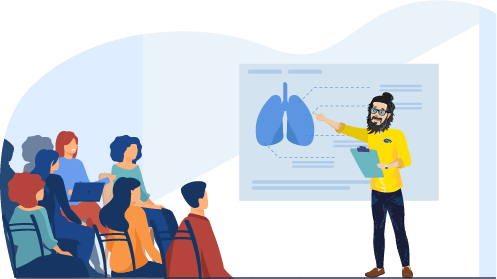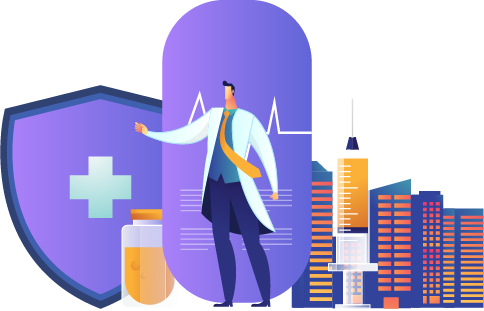Training for Healthcare
The healthcare sector creates distinct challenges for learning and development professionals, with an extremely specific training audience. With regards to healthcare regulations and accessible healthcare, it creates additional hurdles for design and deliverables. Some of these challenges include the development of new health problems, precipitous shifts in patient expectations towards quality and cost of care, and an immense shortage of talent.
Investing in robust learning and development is crucial for increasing retention because career growth is a huge motivator for employees within the healthcare field.
Shortage of talent often jeopardizes healthcare organizations across the country, and employees must be adequately prepared to provide the highest quality of care to

patients. To meet the demand, healthcare organizations need to implement effective learning and development programs to attract new employees and retain current team members. As technology continues to improve and break down standard healthcare processes, upskilling current employees has become even more significant.
Recent times have shown to us that healthcare workers must stay up-to-date about new researches, best practices, procedures and regulations. Modifying eLearning courses on an LMS is much easier and faster than updating traditional training content and sending staff on refresher courses. The top healthcare organizations are continuously looking to acquire skills and specialties. To deal with the vast changes in healthcare, organizations should stay ahead of the game by modernizing their approach to training and development as well as offering consistent and regular learning throughout the career path. The healthcare industry should seek out future employees that are enthusiastic about advancing their skillset, knowledge, and careers. Spending time in Instructor-led training programs takes away from caring for and interacting with patients. L&D professionals need to design flexible and dynamic experiences so that employees can learn about the latest subjects while also doing their jobs.
Few strategies and tips before the new L&D framework is established by Healthcare employers:
- Demonstrate the value of training
- Make training more accessible/embrace mobile learning
- Develop an effective data-driven program
- Lean on partners and SMEs
Why Brihha in Healthcare?
Managing the ever-changing training needs of several employees manually can be tiring and time-consuming. Sometimes it may not even be effective for the amount of time and energy spent. Brihha LMS Suite can transform your organization’s employee training programs.
Employees can complete the courses without taking much time away from work. Here are some of the many ways in which Brihha LMS benefits the healthcare industry:
- Provides a flexible learning experience
- Increases knowledge retention
- Reduces learning cost and time
- Eases compliance
- Enables experiential learning

Risk-free, in the time of a global pandemic, is often “contact-less.” It has become imperative for service providers to quickly adapt to the “new normal” with digital tools that help their customers reduce physical exposure. Digital reality is a hypernym for augmented reality (AR), virtual reality (VR), mixed reality, and a gamut of other associated technologies. Virtual Reality (VR) involves using audio and video to immerse a user in the experience of an artificial environment, often in 3D and with 360 degrees of vision. This creates a fully rendered digital environment that substitutes the user’s real-world environment.
Brihha is the best LMS for Healthcare because of its usefulness in areas like patient management, point of care, telehealth, and home-based care. Brihha’s AR/VR Studio and Gamification features can help simulate the environment reducing risk to patient lives.
Talk to Us
" Hi! Want to meet our experts for a product demo? "

